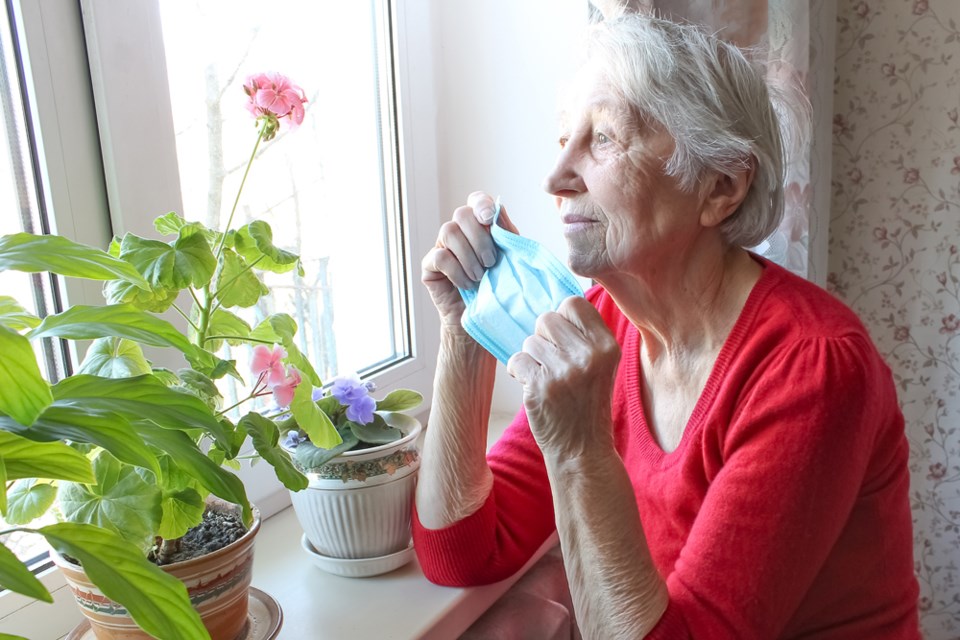It was World Elder Abuse Awareness Day earlier this week, a day chosen by the United Nations “where people across the globe use their collective voice to raise awareness about abuse against older persons.”
Many events were held to mark this day (June 15) including a statement from B.C.’s Seniors Advocate Isobel Mackenzie, the wearing of purple ribbons, a purple flag flown in Victoria, as well as numerous community activities.
World Elder Abuse Awareness Day and the wearing of purple – which symbolizes the growing issue of elder abuse – are emblems of support for the United Nations International Plan of Action, which acknowledges the significance of elder abuse as a public health and human rights issue.
In her speech, Mackenzie stated her desire for people to “educate yourself about elder abuse and to know how to report it. Elder abuse is preventable, and everyone has a role to play.”
One of the major players in the fight against elder abuse is the British Columbia Association of Community Response Networks (BC CRN). On its website the association states that it grew out of the need to create an ongoing, permanent provincial funding and support structure for the benefit of vulnerable adults who are experiencing abuse, neglect, and self-neglect.
Our nearest chapter is the North Shore Community Response Network, which are dedicated to working on local issues of abuse.
According to the association, elder abuse commonly refers to adult abuse where the target is a senior or older adult. Simply put, elder abuse is violence, mistreatment or neglect towards older adults and there is often a power differential.
An abuser is someone, who is likely to be someone known to the abused elder person such as a friend, family member or caregiver. Elder abuse takes many forms: financial, psychological, physical, and sexual.
The association states: “Instances of abuse often coincide with neglect. Neglect is when lack of care, assistance, or attention leads to physical, mental, or emotional harm, or loss of financial assets. Self-neglect is the failure to care for one’s self that causes serious physical or mental harm, or damage to or loss of assets.”
The association also states that due to the ongoing COVID-19 health crisis new challenges are apparent as the pandemic proceeds.
Elder abuse is an issue that affects millions of older adults and has detrimental effects on their health and well-being. It is estimated that 16 per cent of older adults over the age of 60 have been affected by some form of abuse, which amounts to about 1.5 million Canadians in that demographic.
That number has likely increased during the global pandemic due to an increase of older adults who are isolated and lonely, rely on other people for their daily needs, are feeling pressured to support their relatives, and may not have access to appropriate and responsible people who can support them or help them through this crisis.
It is important to know how to recognize potential signs of abuse, but unfortunately, we often fail to recognize early warning signs.
The COVID-19 pandemic has made it even more challenging to identify signs of abuse and neglect because of isolation, lessened face to face communication and less contact with outside activities such as seniors centres or seniors programs where staff are on the alert for signs.
Some signs of elder abuse could include injuries such as bruises, cuts, or broken bones, malnourishment or weight loss, poor hygiene, symptoms of anxiety, depression, or confusion, unexplained transactions or loss of money and withdrawal from family members or friends.
To report elder abuse, you can find resources specific to your province or territory by clicking here.
On the North Shore if you know of an abuse issue or you are experiencing abuse try the ReAct Adult Protection program at 1-877-732-2899. This program receives reports, provides consultation and co-ordinates responses to adults who are abused, neglected or self-neglected. People can also try the Seniors Abuse and Information Line at 604-437-1940.
This organization provides a safe place for older adults and those who care about them to talk to someone about issues of abuse or mistreatment. You could also try the North Shore Community Response Network which provides education on prevention of the abuse and neglect of vulnerable adults.
On other fronts, B.C’s Seniors Advocate has been working with the B.C. Securities Commission which has produced an educational video about the signs of financial elder abuse. This includes the mishandling of an older person’s money or property and acts of fraud.
The Seniors Advocate’s office has also been working with the Office of the Information and Privacy Commissioner to launch an awareness campaign to help seniors understand how to protect their privacy online and off, with tips about protecting your personal information.
View the privacy brochure for seniors by clicking here.
As a civil society it is very troubling to hear about the abuse of older adults, so it is up to us to change that reality. Though World Elder Abuse Awareness Day is over, let us work year-round to make the changes to this world crisis.
Margaret Coates is the co-ordinator of Lionsview Seniors’ Planning Society. She has lived on the North Shore for 50 years and has worked for and with seniors for 25 of those years. Ideas for future columns are welcome Email: [email protected].



